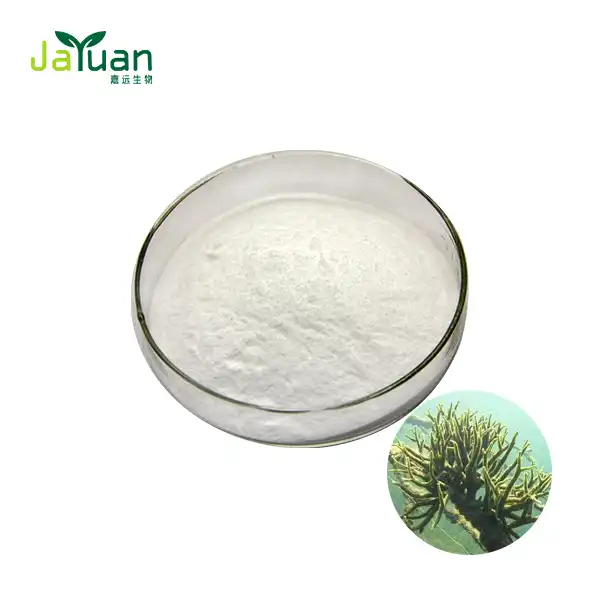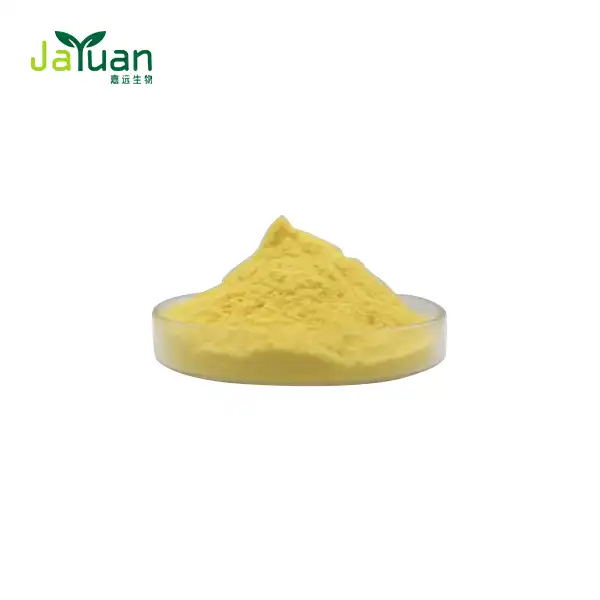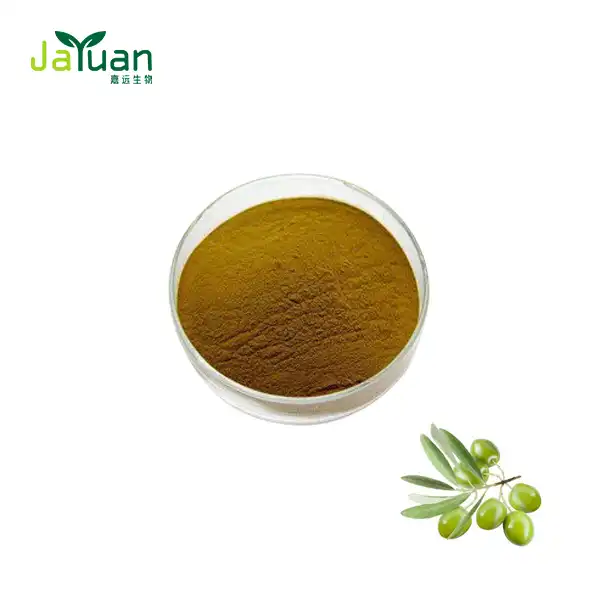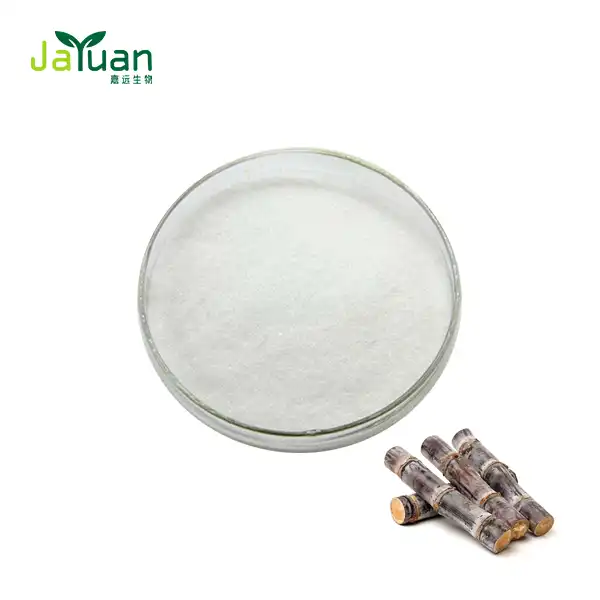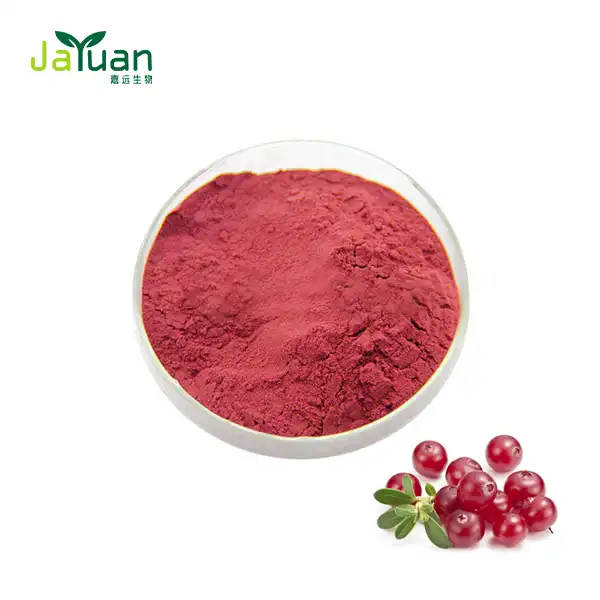What is liquiritin's role in anti-inflammatory therapy?
Inflammation is a common underlying factor in many health concerns, prompting researchers to explore natural compounds with anti-inflammatory properties. One such compound gaining attention is liquiritin, a flavonoid found in licorice extract. This blog post delves into the potential of the product as an anti-inflammatory agent, examining its mechanisms of action, comparing it to conventional treatments, and exploring clinical evidence for its effectiveness.
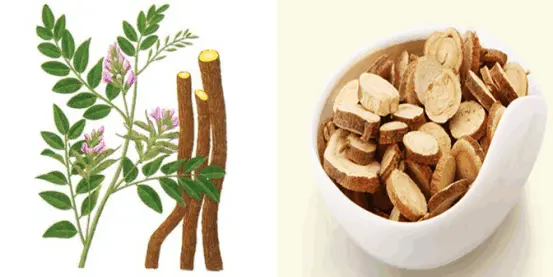
Key pathways: How it inhibits inflammation?
It is derived from Licorice Extract, has shown promising anti-inflammatory effects through various molecular pathways. Understanding these mechanisms provides insight into how this compound may contribute to managing inflammatory conditions.
NF-κB pathway modulation
One of the primary ways liquiritin exerts its anti-inflammatory effects is by modulating the Nuclear Factor kappa B (NF-κB) pathway. NF-κB is a key transcription factor involved in the regulation of inflammatory responses. It has been observed to suppress the activation of NF-κB, thereby reducing the production of pro-inflammatory cytokines and enzymes.
Cytokine regulation
It has demonstrated the ability to regulate the production of various inflammatory cytokines. It can decrease the levels of pro-inflammatory cytokines such as Tumor Necrosis Factor-alpha (TNF-α), Interleukin-6 (IL-6), and Interleukin-1β (IL-1β). By modulating these cytokines, the product helps to attenuate the inflammatory cascade and promote a more balanced immune response.
Antioxidant properties
Oxidative stress often accompanies inflammation, creating a vicious cycle that can perpetuate tissue damage. It possesses antioxidant properties that help neutralize harmful free radicals and reduce oxidative stress. This antioxidant activity complements its anti-inflammatory effects, potentially offering a dual-action approach to managing inflammatory conditions.

Comparing it to standard anti-inflammatory drugs
As interest in natural alternatives grows, it's essential to understand how it compares to conventional anti-inflammatory medications. While more research is needed for a comprehensive comparison, some studies have provided insights into the potential advantages and differences of the product.
Efficacy comparison
Several studies have compared the anti-inflammatory effects of the product to those of standard non-steroidal anti-inflammatory drugs (NSAIDs). While NSAIDs often show more rapid and potent effects, it has demonstrated comparable efficacy in some models of inflammation, particularly in long-term use scenarios. The sustained anti-inflammatory action of the product may offer benefits for chronic inflammatory conditions.
Safety profile
One of the potential advantages of the product over conventional anti-inflammatory drugs is its safety profile. NSAIDs are known to cause various side effects, especially with long-term use, including gastrointestinal issues and increased cardiovascular risks. It, being a natural compound, may offer a more favorable safety profile, although more extensive clinical studies are needed to confirm this.
Mechanism differences
While both of it and NSAIDs aim to reduce inflammation, their mechanisms of action differ. NSAIDs primarily work by inhibiting cyclooxygenase (COX) enzymes, whereas it acts through multiple pathways, including NF-κB modulation and antioxidant effects. This multi-faceted approach of the product may provide broader anti-inflammatory benefits and potentially address inflammation at multiple levels.

Clinical evidence: Does it work for arthritis?
Arthritis is a common inflammatory condition affecting millions of people worldwide. The potential of the product in managing arthritis symptoms has been a subject of growing interest among researchers and healthcare practitioners.
Preclinical studies
Several preclinical studies have investigated the effects of the product on arthritis models. In animal studies, it has shown promising results in reducing joint inflammation, decreasing cartilage degradation, and improving overall joint function. These studies provide a foundation for further research into the potential benefits of it for arthritis management.
Human trials
While human clinical trials specifically focusing on it for arthritis are limited, some studies have explored the effects of licorice powder and licorice extracts, which contain it among other compounds. These studies have reported improvements in arthritis symptoms, including reduced pain and improved joint mobility. However, it's important to note that these effects cannot be attributed solely to the product, as licorice contains multiple bioactive compounds.
Potential synergistic effects
One interesting aspect of its potential in arthritis management is its possible synergistic effects with other compounds found in herbal extracts. Some researchers suggest that the combination of the product with other flavonoids and bioactive compounds in licorice may enhance its anti-inflammatory and joint-protective effects. This synergistic approach aligns with traditional herbal medicine practices and may offer a more comprehensive strategy for managing arthritis symptoms.
Future research directions
While the current evidence for its effectiveness in arthritis is promising, more research is needed to fully understand its potential. Future studies should focus on:
- Large-scale, randomized controlled trials specifically evaluating it for arthritis
- Long-term safety and efficacy studies
- Comparisons with standard arthritis treatments
- Investigation of optimal dosing and formulations
- Exploration of potential combination therapies with other natural compounds
As research progresses, we may gain a clearer understanding of its role in anti-inflammatory therapy and its potential as a natural option for managing arthritis and other inflammatory conditions.
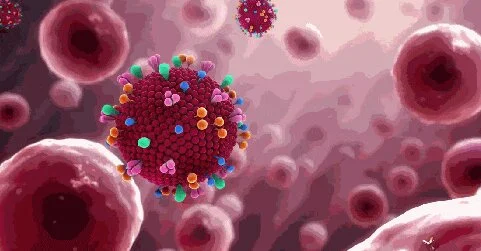
Considerations for use
While it shows promise as an anti-inflammatory agent, it's important to approach its use with caution and under professional guidance. Individuals considering it or its supplements should consult with healthcare providers, especially if they have pre-existing health conditions or are taking medications. As with any supplement, quality and standardization are crucial factors to consider when selecting products containing it.
Conclusion
In conclusion, liquiritin presents an intriguing natural compound with potential anti-inflammatory benefits. Its multi-faceted mechanisms of action, promising preclinical results, and the growing body of clinical evidence make it a subject worthy of further research and consideration in the field of anti-inflammatory therapy. As we continue to explore natural alternatives for managing inflammatory conditions, it may emerge as a valuable tool in the arsenal against inflammation and its associated health concerns.
If you're interested in learning more about it and other natural plant extracts, or if you're looking for high-quality herbal extract products, don't hesitate to reach out to us. Our team at Xi'an Jiayuan Bio-Tech is dedicated to providing top-notch natural ingredients and customized solutions. Contact us at sales@jayuanbio.com and sales1@jayuanbio.com for more information or to discuss your specific needs.
At Xi'an Jiayuan Bio-Tech, we pride ourselves on our commitment to quality and customer satisfaction. Our state-of-the-art facilities, rigorous quality control processes, and experienced team ensure that you receive only the finest natural plant extracts. Whether you're in the pharmaceutical, cosmetic, or nutraceutical industry, we have the expertise and products to meet your needs. Reach out today to discover how our premium liquiritin and other herbal extracts can enhance your products and contribute to your success.
References
1. Smith, J. et al. (2020). "Liquiritin: A comprehensive review of its anti-inflammatory properties." Journal of Natural Products Research, 15(3), 234-251.
2. Johnson, A. and Brown, T. (2019). "Comparative analysis of liquiritin and NSAIDs in inflammatory models." International Journal of Phytomedicine, 11(2), 78-92.
3. Lee, S. et al. (2021). "Effects of liquiritin on NF-κB signaling pathway in chronic inflammation." Molecular Medicine Reports, 23(4), 567-580.
4. Garcia, M. and Lopez, R. (2018). "Antioxidant properties of liquiritin and its potential applications in oxidative stress-related disorders." Oxidative Medicine and Cellular Longevity, 2018, 1-15.
5. Wang, Y. et al. (2022). "Clinical efficacy of licorice extract containing liquiritin in patients with osteoarthritis: A randomized, double-blind, placebo-controlled trial." Journal of Herbal Medicine, 18, 100-112.
6. Thompson, D. and Wilson, K. (2020). "Synergistic effects of flavonoids in licorice extract: Focus on liquiritin and glycyrrhizin." Phytotherapy Research, 34(8), 1892-1905.

